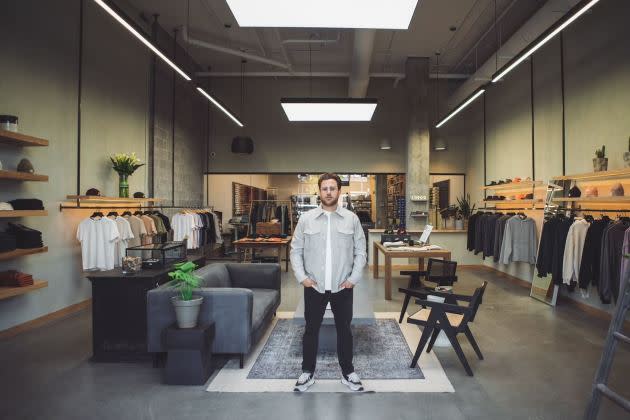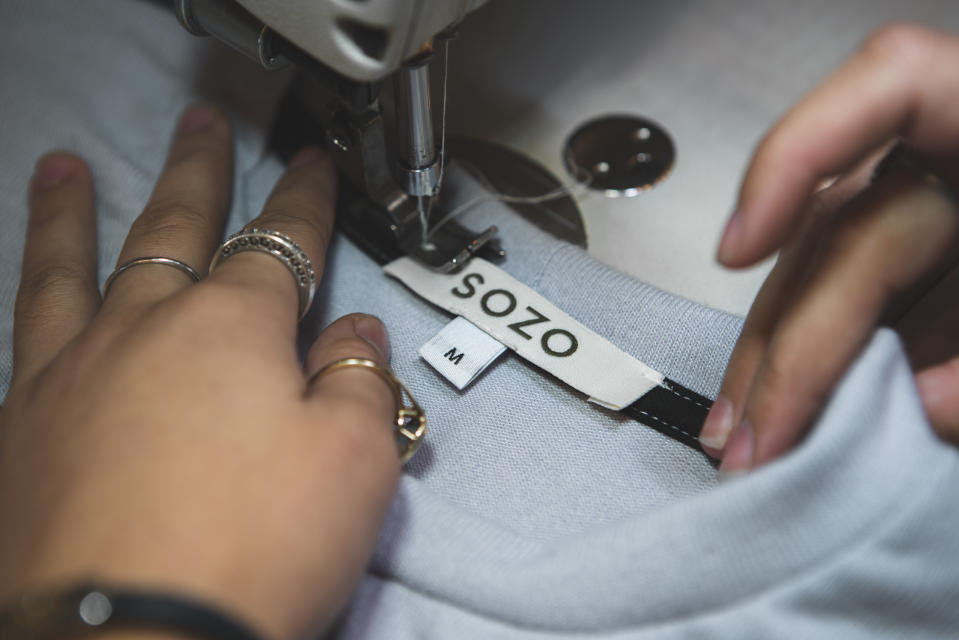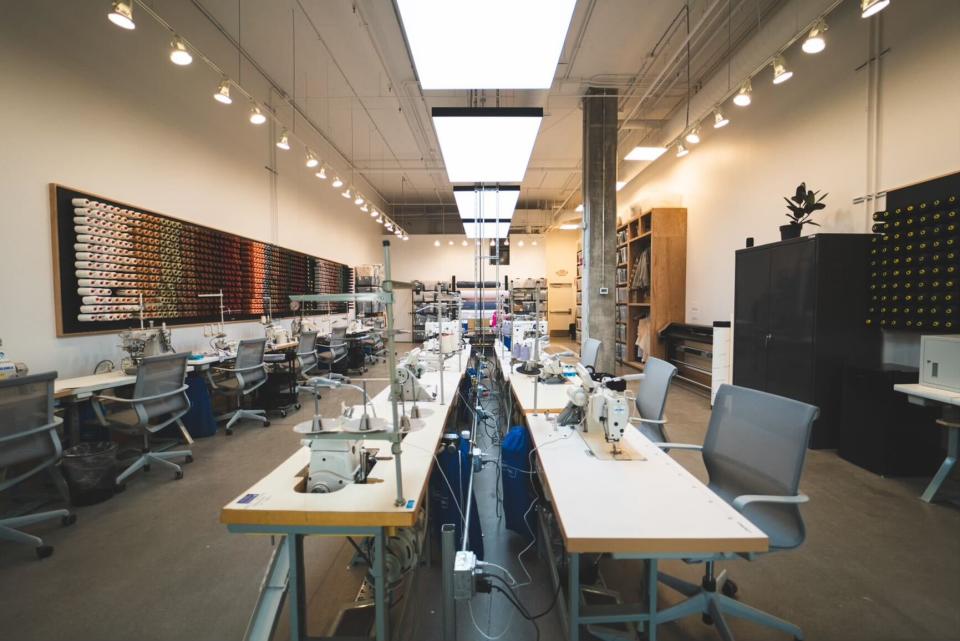Sozo Brings Farm-to-table Concept to Fashion

Todd Leebow has walked an unconventional path to become an apparel manufacturer — and now a retailer.
Leebow is the president and chief executive officer of Majestic Steel USA, his family’s Cleveland, Ohio-based flat-rolled steel company. But he’s also an entrepreneur who has launched his own film production company, opened a restaurant, is creating a real estate development business and also operates a hospitality company. During the pandemic he turned his attention to fashion, launching Sozo, an apparel brand that employs local artists and creators.
More from WWD
Last weekend, Sozo opened a flagship store in Cleveland, a 2,200-square-foot space that showcases what Leebow refers to as the fashion industry equivalent of a farm-to-table concept. The store employs an open concept format where over half of the square footage is dedicated to the production facility, allowing customers to view the creation of the line’s cut-and-sewn apparel through a glass partition.
“It’s the same as an open kitchen,” Leebow said.
Sozo was born as a way to protect Majestic Steel’s essential workers who needed masks to continue their work in the factory during the early days of the pandemic. “At that time it was tough to source masks,” Leebow said.
Undeterred, he knew his team was proficient in manufacturing so he decided to buy fabric and have his team of workers make the masks themselves. “It’s not really all that different,” he said. “We were well-versed in manufacturing so we sourced the fabric to make masks for our own purposes. We had big roles of steel and now we had big roles of fabrics.”
It didn’t take long for a light to go off in Leebow’s head. If his team could produce masks, why not clothing?
So he pivoted again and assembled a team of local designers and producers — chief operating officer Christine Rizk and creatives Danielle Pusateri, David Vangieson and Dean Furguson — to launch Sozo, a word that is short for Soteria, the Greek goddess of safety and preservation from harm.
Together they created a tight collection of elevated American classics such as T-shirts, hoodies, joggers, woolen flannels and knit accessories. “We saw that the world was changing, people were working remotely and dressing more casually,” he said. “So we built out our vision of a locally made, quality, modern American brand and carved out a new lane.”

That lane now includes the retail store. “We took our production team and moved them into the retail space,” Leebow said. “The next generation is very curious and wants to understand the how, the what and the why of what they’re buying.” The opportunity to watch the collection come to life also serves as both education and entertainment for customers.
In a nod to sustainability, pieces will be produced as they are sold, eliminating the need for holding large amounts of stock. And by manufacturing everything locally, transportation costs and supply chain issues are eliminated. “In restaurants, there are scratch kitchens, this is scratch fashion,” he said.
“It’s exciting to be able to show how Sozo is made and bring true transparency to the fashion industry,” he said. “We’re not anti-offshore, but we think local first, then America, then global.”

In addition to the Sozo collection, the store carries complementary products with a similar mission and aesthetic including Duke & Dexter footwear, Hiroshi Kato denim, Grown Alchemist skin care, books by Taschen and the brand’s first collaboration, jewelry with Handle With Care.
The Sozo collection is unisex but uses men’s sizing and prices range from $88 for a T-shirt to $168 for a flannel camp shirt. Joggers are $108 to $128 and shorts are $88, while beanies are $38 and caps are $68.
Up until now Sozo had been sold only online on the brand’s website and Leebow looked at it as more of a beta launch as they readied the retail space. “Online is a very crowded space, our differential is what we do in store,” he said.
The goal, he said, is to eventually bring Sozo to other markets. “As we grow, we plan to replicate this store model in other markets, giving them a similar localized experience,” he said. The brand would work with local designers and makers and tailor the assortment to each city.
One day he hopes to wholesale the collection. “But first we want to open our own store to introduce the brand to the market,” he said.
“It’s exciting to be able to show how Sozo is made and bring true transparency to the fashion industry as we open the first of what we hope will be many locations.”

